5 Hot New Advances In Water Heating Technology
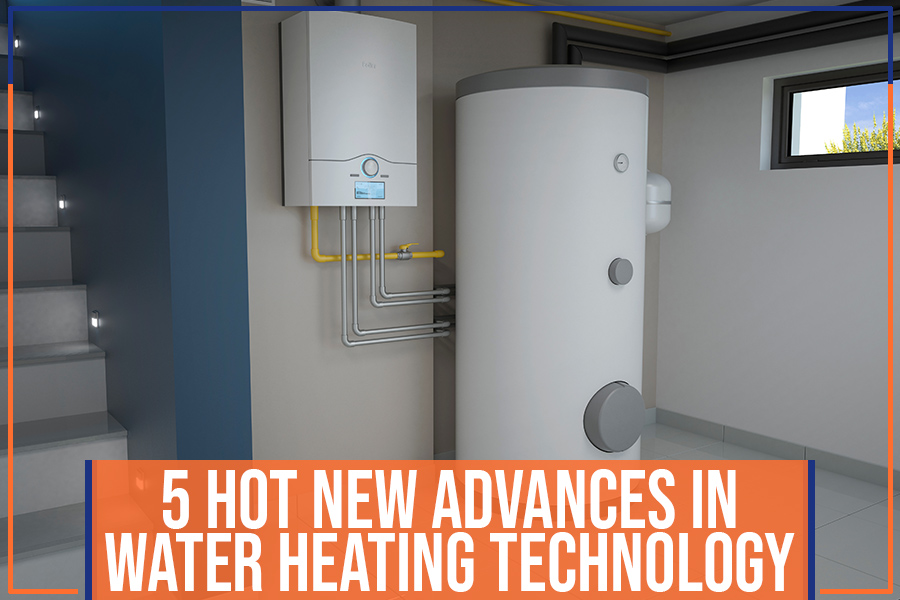
- Post author:admin
- Post published:August 24, 2022
- Post category:A Better Plumber Blog
Like most people, you probably take hot showers for granted. It’s hard to imagine life without them! Fortunately, water heating technology is constantly improving, and there are now some significant new advances in this area that can help make your life a lot more comfortable. In this blog post, A Better Plumber & Sewer will discuss some of the hottest new advances in water heating technology.
01: Tankless Water Heaters
Tankless water heaters are the newest development in ecologically friendly water heater technology. Traditional tank versions waste energy since heated water cools and needs to be heated again. Whereas tankless systems entirely omit the tank and only heat water when needed.
Tankless water heaters also use less room because they are significantly smaller than conventional ones. And because they don’t have a tank full of water, there’s no risk of leaks. Tankless water heaters also use up to 25% less energy than traditional ones, which may benefit both the budget and the environment over time.
02: Solar Water Heaters
Solar water heaters are worth considering if you’re looking for an environmentally friendly and cost-effective way to heat water. Solar panels are used in solar water heaters to capture solar energy and turn it into heat. The water in a storage tank is then heated using this heat.
Solar water heaters are very efficient and can save much money on utility bills. They are also eco-friendly because they rely on renewable energy from the sun to operate.
03: Geo-thermal Heat Pump Water Heaters
Geothermal heat pump water heaters are water heaters that use the earth’s natural heat to warm up the water. These systems use a ground loop to collect heat from the earth and then transfer it to the water in a storage tank.
In water heaters, heat is often drawn from the air during the warmer months and deep under the soil during the colder winter months. They are also eco-friendly because they rely on renewable energy from the earth to operate.
04: Air-Source Heat Pump Water Heaters
Air-source heat pump water heaters are a type of water heater that uses the air around it to warm up the water. As they use the air around them, they should be installed in a location that produces excessive heat, close to a furnace. These systems often have the effect of chilling the space where they are installed, making them ineffective in colder climates.
05: Under-Sink Kitchen Water Heaters
Hot water heating units can now be made smaller thanks to technological advances. Today’s cutting-edge kitchen sink ideas involve placing an under-sink water heater just beneath the kitchen sink for fast, on-demand hot water.
Under sink water heaters may be tankless or utilize a tiny tank of just 1-2 gallons to give hot water when and where you need it. For homeowners that want a lot of hot water at once and on-demand in the bathroom, under-sink water heaters can also be a fantastic alternative for the bathroom sink in addition to kitchen sinks.
At Better Plumber & Sewer, serving Arlington Heights, Illinois, we enjoy keeping up with all the newest plumbing developments, including innovative water heating technologies.
Call us today if you’re considering replacing your water heating system or want to learn more about your alternatives.
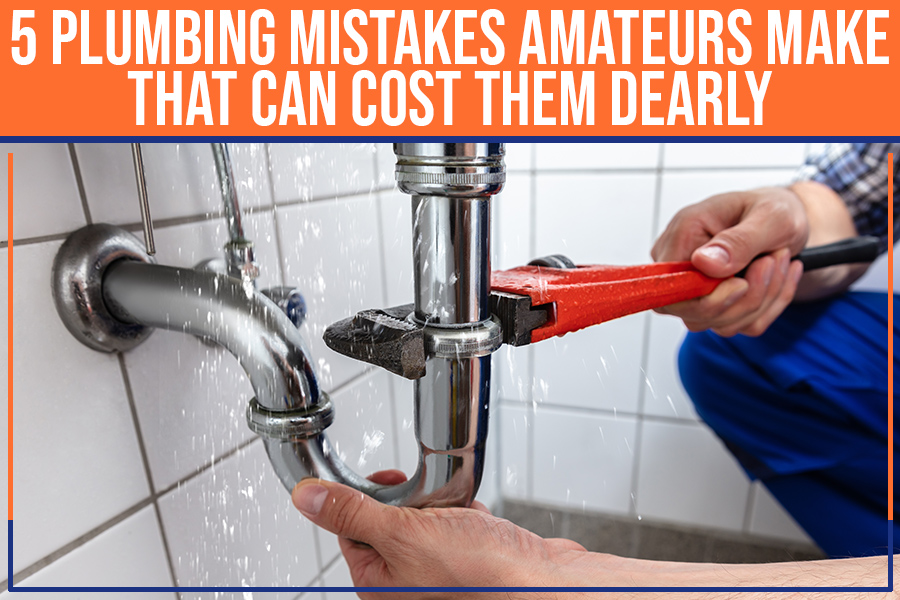
- Post author:admin
- Post published:August 17, 2022
- Post category:A Better Plumber Blog
Many homeowners have been there. You are elbow-deep in a plumbing repair project, and things aren’t going as planned. Maybe you tried fixing a leaky faucet without instructions, and now the water’s spraying all over the place. Or perhaps you decided to take on fixing the toilet yourself, and now it won’t stop flushing.
Whatever your mistake, it’s important to know how to fix it quickly – and, more importantly, avoid these plumbing mistakes in the first place!
In this blog post, we’ll explore some of the most common plumbing mistakes amateurs make – and how to avoid them. Stay safe and dry out there!
1. Not Shutting Off the Water Supply
It’s one of the most basic rules of plumbing, yet it’s also one of the most overlooked. Shutting off the water BEFORE beginning any repairs prevents flooding and potential damage to your home or property. Amateurs often forget to shut off the water and make a bigger mess than they started!
If you’re unsure how to shut off your home’s water supply, then it’s better to call an expert. Give your nearby plumbing company a call! Better be safe than sorry.
2. Trying to Fix Everything Yourself
Saving a few bucks can be tempting, but there are some things that are best left to the professionals. Plumbing repairs are one of those things. Sure, you might be able to change out a washer or two, but anything more complicated than that requires experienced hands.
If you make a mistake, you could cause serious damage to your home’s plumbing system – and that will cost you a lot more to fix than if you had just called a plumber in the first place.
3. Over-Tightening Fittings
When working with plumbing fittings, it’s important not to over-tighten them. This can damage the fitting and cause a leak. Just tighten the fitting until it is snug – no need to go overboard!
4. Not Knowing the Warning Signs
Another mistake amateur plumbers make is not knowing the warning signs of a plumbing problem. If you don’t know what to look for, you could end up with a serious issue on your hands – and again, that will cost you a lot more to fix than if you had caught it early.
So, what are those warning signs? Let’s find out.
- Water stains on ceilings/walls: This could signify a leak in your plumbing system.
- A musty smell in your home: This could be a sign of mold or mildew, which leaks can cause.
- High water bills: This could be a sign that you have a leak somewhere in your home.
These signs mean it’s important to call a professional plumbing services company immediately.
An unqualified plumber may not be able to diagnose the problem properly, and they may not have the necessary skills to fix it.
If you’re looking for a reputable plumbing services company in Illinois, look no further than A Better Plumber & Sewer in Fox Lake. You can rely on us for most plumbing services, including water leak repair, sewer power rodding, backflow testing, plumbing inspections with a camera, and much more!

- Post author:admin
- Post published:August 5, 2022
- Post category:A Better Plumber Blog
A clogged drain usually means overflowing shower drains, stagnant water in the kitchen sinks, or sewage backup in the privy. Such situations would usually have homeowners swoon & cuss, but don’t despair! You can use several unclogging strategies to clear the blockage and get your plumbing back in working order.
A Better Plumber & Sewer will discuss sewer rodding methods used by plumbing contractors and their benefits for homeowners.
Sewer Rodding
Itis a drain cleaning method that involves using a long, flexible rod to remove blockages from your sewer line. Rodding is an effective way to clear clogs that are caused by tree roots, grease, and other debris. Rodding is also less expensive than other drain cleaning methods, such as hydro jetting.
A clogged drain can cause sewage to back into your home, leading to serious health hazards. Additionally, a backup can cause extensive damage to your home’s plumbing system. By rodding your drain regularly, you can prevent these problems from occurring.
Benefits to Sewer Rodding
There are several benefits to this method for homeowners. Rodding can be used to clear blockages that are located far from your home’s main drain line. It is essential because it can prevent sewage backups and flooding. Rodding is also less disruptive than other drain cleaning methods, such as hydro jetting. Rodding is typically performed by a plumbing professional for maximin efficacy.
Types of Rodding Tools
No matter what type of clog you’re dealing with, the goal is to clear the blockage without damaging the pipes. Here are the different rodding tools that plumbing contractors use:
1. Drain Snake or Auger:
Insert the drain snake or auger into the drain and twist it clockwise until you feel resistance. Then, turn the drain snake counterclockwise to loosen the blockage and allow it to be pulled out of the drain.
2. Drain Rodding Machine:
Insert the drain rodding machine into the drain and turn it on. The rotating blades will cut through the blockage, allowing it to be flushed out of the gutter. A drain cleaning company will have this tool with them.
Clogging Sources
If you think you have a clogged drain, the first step is to identify the source of the blockage.
If the drain is located in your kitchen, the clog is likely caused by food waste. In this case, you’ll need to use a drain snake or auger to clear the blockage.
If the drain is located in your bathroom, the clog is likely caused by hair and soap scum. In this case, you’ll need to use a drain auger to clear the blockage.
When you’ve identified the source of the clogged drain, you can choose the appropriate rodding tool for the job. A drain snake or drain auger may be all you need for smaller clogs. Hire a plumbing contractor in Round Lake, IL, to open larger clogged drains with the help of a drain rodding machine.
Ending Note
You can use several strategies to clear the drain blockage and get your plumbing back in working order. A Better Plumber & Sewer, serving Round Lake, IL, offers a range of quality plumbing solutions for commercial & residential purposes. We adhere to industry standards to get that redundant clog cleared from your drains once and for all!
Please request a free quote today on our services & get ready for clog-free plumbing!
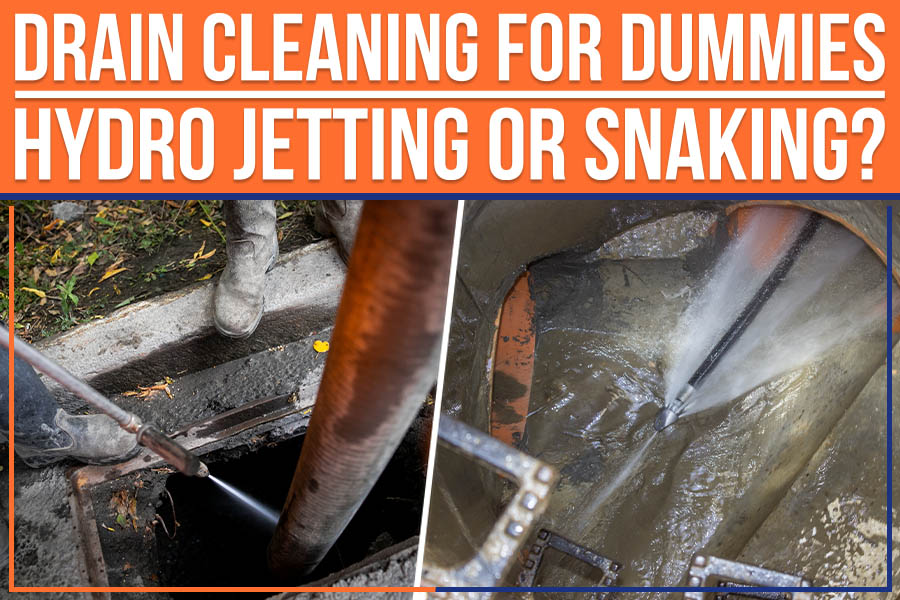
- Post author:admin
- Post published:July 22, 2022
- Post category:A Better Plumber Blog
Like most homeowners, you probably don’t think about drain cleaning until there’s a problem. And when that dreaded clogged drain rears its ugly head, it can be tough to know which technique to use to clear it: hydro jetting or drain snaking?
In this blog post, A Better Plumber & Sewer serving Mt. Prospect, IL, will break down the pros and cons of each procedure so you can reach an informed decision.
Keep scrolling to learn more!
What is Hydro Jetting?
Our first method of drain cleaning is hydro jetting, which uses high-pressure water to blast through a clogged drain. Hydro jetting is an excellent option because it’s effective and relatively affordable.
The only downside to hydro jetting is that it can be disruptive to your home or business, as some drains aren’t able to handle the high water pressure. You’ll need to consult a professional company like A Better Plumber & Sewer for this service.
What is Drain Snaking?
Drain snaking is a drain cleaning method that uses a long, flexible wire to remove clogs. Drain snakes are great because they’re inexpensive and can be used on most drain types.
The downside to drain snaking is that it can be time-consuming and may not be as effective as hydro jetting. If you have a drain that’s been clogged for a while, it might be better to opt for hydro jetting.
The Benefits of Hydro Jetting
Hydro jetting is much more effective than drain snaking because it can reach further into your drain and break up clogs that drain snakes can’t.
It’s also an excellent preventative measure. Hydro jetting can remove years’ worth of build-up from your drain, making it less likely to become clogged.
The Benefits of Drain Snaking
Though hydro jetting is very effective, drain snaking is less expensive and requires less skill. A homeowner can perform drain snaking on their drain, but a professional should perform hydro jetting. Drain snaking is the way to go if you’re looking for a drain cleaning method that is both effective and affordable.
Which One Should I Choose?
If you’re still unsure about which drain cleaning method to choose, consider the following about the type of clogged drain you have.
- Drain snaking is the best option if your drain is clogged with grease, hair, or other organic matter.
- Hydro jetting is the best option if your drain is clogged with mineral deposits.
- If your drain is old or can’t take the heavy-duty approach of hydro jetting, drain snaking is the best option.
Conclusion
Drain cleaning is an integral part of home maintenance. By choosing the correct cleaning method for your clogged drain, you can avoid damaging your drain and keep it flowing freely for years to come.
For all your drain cleaning needs, reach out to A Better Plumber & Sewer. We offer professional hydro jetting services in Mt. Prospect, IL, which will clear away any clog, no matter how stubborn.
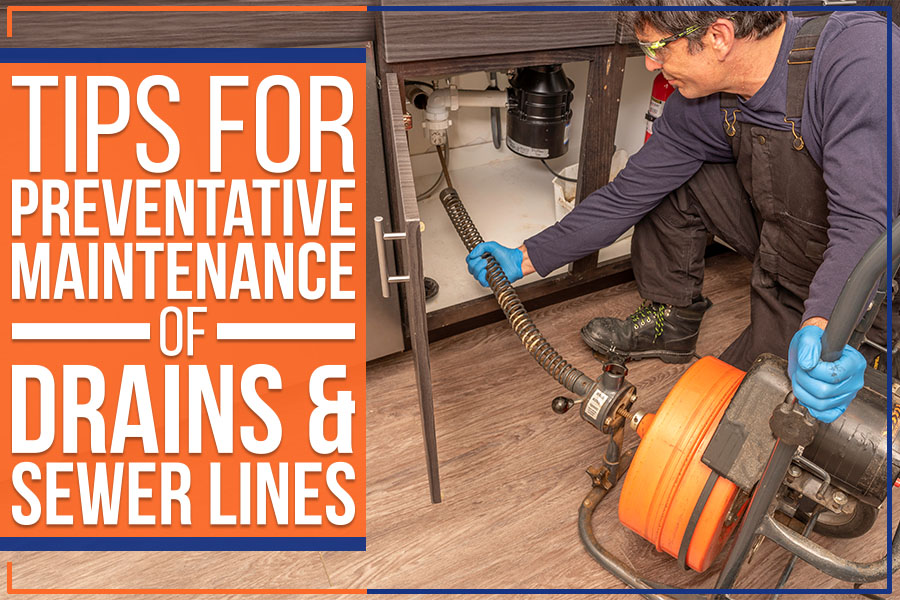
- Post author:admin
- Post published:July 18, 2022
- Post category:A Better Plumber Blog
There is no way to sugarcoat it – owning a home can be expensive. Between property taxes, insurance premiums, and routine repairs & maintenance, you could easily spend thousands of dollars each year.
However, one cost that is often overlooked is the maintenance of drains and sewer lines. Drains and sewer lines are often taken for granted—until they back up and cause a significant problem.
However, homeowners can take proactive steps to preventthese problems. This blog post by A Better Plumber & Sewer will discuss some essential preventive measures, so keep reading!
1. See What Goes Down Your Drains
Avoid dumping grease, coffee grounds, and other solid waste down the drain, as these can build up and cause clogs. Also, be sure to maintain your garbage disposal properly. Don’t put too much food waste down at once, and run cold water for 30 seconds before and after use.
2. Invest In a Drain Screen
A drain screen is a simple and inexpensive way to keep your drains clear. It works by catching hair, food, and other small items before they have a chance to clog up your pipes. You can find drain screens at most hardware stores.
3. Run Water Regularly
If you have infrequent guests or live in a home with few people, you might not use your sinks and showers as often as someone who lives in a larger household.
However, running water through your drains regularly is important to keep them from drying out and becoming clogged. Try running the water for a minute or two each week to keep your drains flowing freely.
4. Invest In A Drain Snake Or Plunger
You can insert a drain snake into your drains to clear away clogs. If you don’t want to invest in a drain snake, you can use a plunger to clear away clogs. Place the plunger over the drain and push and pull the plunger up and down to create suction.
5. Regularly Inspect Your Drains
Cracks and leaks can allow water to seep into your home, leading to mold and mildew growth. They can also allow sewage to leak into your home, which can create a health hazard.
6. Use a DIY Drain Cleaner
If you’re looking for a more natural way to clean your drains, try using a mixture of baking soda, vinegar, and hot water.
Pour ¼ cup of baking soda down the drain, followed by ½ cup vinegar. Allow the mixture to sit for 10-15 minutes, then flush with hot water. Repeat as needed.
These essential tips help keep your drains and sewer lines running smooth and clog-free! If you still have a clogged drain and sewer line – A Better Plumber & Sewer is here to make it better!
Our team of experienced professionals in Mundelein, IL, provides top-quality services for all your plumbing needs. We do everything from sewer line inspection to preventive maintenance and underground line repair.
We understand that when your drains & sewer lines are clogged & plumbing isn’t working right, it can be a real headache. Our services include water heater and sewer repair, drain cleaning, and other plumbing services to get you back to life with our quick and efficient work!
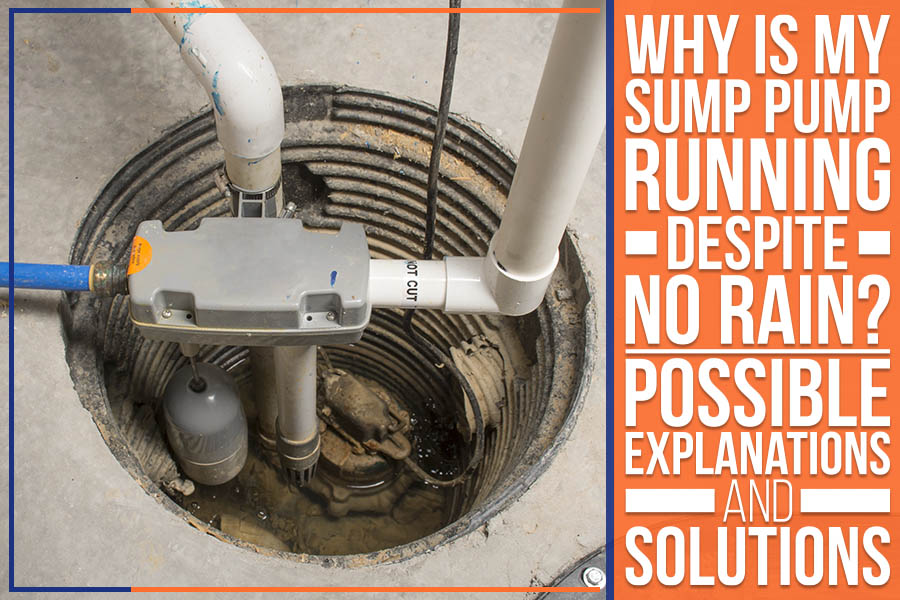
- Post author:admin
- Post published:July 5, 2022
- Post category:A Better Plumber Blog
The sump pump is a must-have for your home, even more so during heavy rain. So, it can be confusing and worrying when your sump pump starts running even though there is no rain.
This blog post will dig into potential reasons your sump pump might be operating without precipitation. By understanding the causes, you can take corrective action and hopefully avoid any costly water damage in the future. Stay dry out there!
Your Pump’s Float Switch is Stuck at ‘On’:
Your sump pump might be running when it’s not raining because the float switch is stuck in the ‘on’ position. The float switch is a mechanism that turns the pump on and off based on the water level in the sump pit. If the float switch is stuck, it will stay ‘on,’ causing the pump to run even when there’s no water.
How to Fix It?
To fix a float switch stuck in the ‘on’ position, you’ll need to replace it with a new one. You can find float switches at most hardware stores.
Your Sump Pump is Worn Out:
Another possible reason your sump pump is running without any rain is that the pump itself is worn out. Pumps can become less effective and need to be replaced over time. If you’ve had your sump pump for a long time, it might be time for an upgrade.
How to Fix It?
If your pump is worn out, you’ll need to replace it with a new one. You can find sump pumps at most hardware stores.
Sump Pump is Malfunctioning:
The pump itself could be faulty. If it’s not working properly, you might get wet without rain!
How to Fix It?
If your sump pump is malfunctioning, you should take it to a professional to have it repaired or consider installing a new sump pump installation.
You Have a Leak:
One final possibility is that you leak somewhere in your home. If there’s much water seeping into your basement, the sump pump might turn on to try and remove the water.
How to Fix It?
If you have a leak in your property, you’ll need to find and fix it as soon as possible. Leaks in the house can cause significant damage, so it’s important to take care of them immediately.
Your Impeller is Clogged:
Another possibility is that your impeller is clogged. The impeller is the part of the sump pump that moves water. If it’s clogged, the pump won’t be able to move water effectively and might turn on even when there’s no rain.
How to Fix It?
You can try cleaning the impeller yourself, but if it’s clogged, you might need to replace it.
Your Basement is Humid:
Another possibility is that your basement is just naturally humid. In this case, the sump pump might turn on periodically to remove moisture from the air.
How to Fix It?
If your basement is humid, you can try using a dehumidifier. That will help remove the moisture in the air and reduce how often your sump pump turns on.
If your sump pump seems like it’s going crazy and you can’t figure out why, then the above compilation of reasons by A Better Plumber & Sewer may help you solve the riddle!
If you’re experiencing any problems with your sump pump in Crystal Lake, please call us today for a free quote. And be sure to check out our plumbing services page—we offer a wide range of reliable services for fixing any plumbing repair issue, big or small.
Thanks for reading, and we hope this article was helpful!
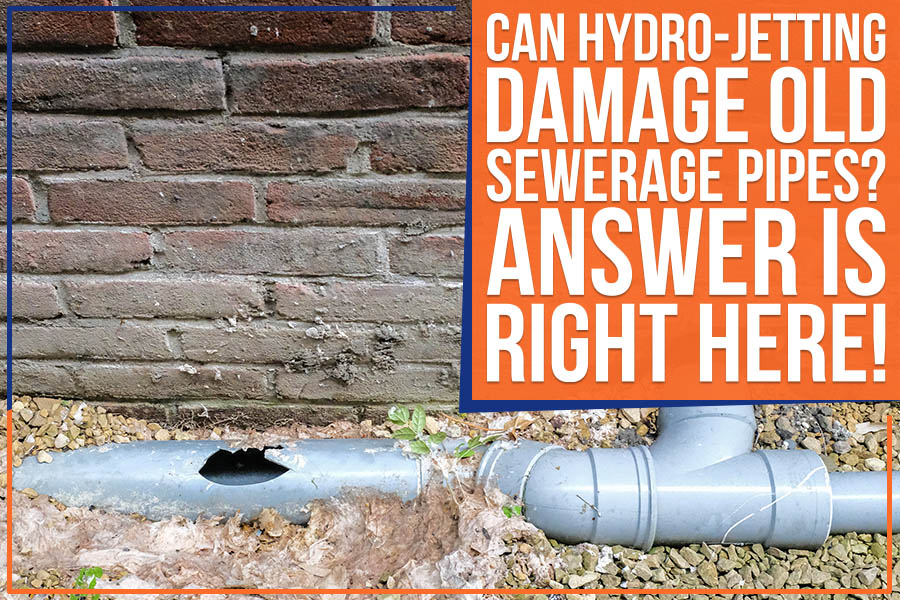
- Post author:admin
- Post published:June 21, 2022
- Post category:A Better Plumber Blog
It’s no secret that hydro jetting is an incredibly powerful cleaning method. Homeowners everywhere use it to blast away tough dirt, debris, and blockages from their sewerage pipes. However, some people are concerned that the high-pressure water could damage their old pipes. So, is hydro jetting safe for older sewerage systems? The answer is yes – but there are a few things you need to know first. Keep reading this post by A Better Plumber & Sewer to learn more!
Hydro Jetting – A Brief Intro
If you’re unfamiliar, hydro jetting is a drain cleaning method that uses high-pressure water to clear away debris and blockages. Professional plumbers typically use Hydro jetters to clear tough clogs that regular plungers and drain snakes can’t handle.
The pressurized water stream from a hydro jetter can reach up to 4000 PSI (pounds per square inch). That’s incredibly powerful! It’s so powerful that hydro jetting is often used in industrial applications – like cleaning the outside of buildings or removing paint from metal surfaces.
But just because hydro jetting is a powerful cleaning method doesn’t mean it’s safe for all types of pipes. Hydro jetting old sewerage pipes can do more harm than good.
Why Using It for Old Pipes Isn’t a Good Idea?
Hydro jetting old sewerage pipes can cause severe damage – even if the plumber is experienced and takes every precaution possible. That’s because the pressurized water stream from a hydro jetter can easily break through old, weak, or corroded pipes.
And once the water stream breaks through the pipe, it can cause extensive damage to the surrounding area. This can include:
1. Damaging Your Home’s Foundation:
Water breaking through the sewer pipe can quickly saturate the ground around your home’s foundation. This can lead to cracks in your foundation, which can cause severe structural damage.
2. Flooding Your Basement or Crawl Space:
If the water from the hydro jetter breaks through the sewer pipe and floods your basement or crawl space, it can cause extensive damage to your home. Water can ruin carpeting, drywall, furniture, and any other belongings that are stored in these areas.
3. Destroying Your Landscape:
The powerful stream of water from a hydro jetter can easily damage your landscaping. Plants and grass can be uprooted, and hardscaping can be cracked or broken.
4. Harm Your Septic System:
If the hydro jetter breaks through the sewer pipe and hits your septic tank, it can cause severe damage to your septic system. The water from the hydro jetter can rupture the septic tank, causing all of the sewage to leak out into your yard. This can contaminate your drinking water and make your family sick.
Don’t Worry, Though…
A Better Plumber & Sewer serving Schaumburg, IL, and the surrounding areas uses the latest hydro jetting technology to clear your sewer lines without damaging your old pipes or landscaping. That’s not all. We also provide plumbing services, including water heater repair, drain cleaning, and more. For all your plumbing needs, request a free quote from A Better Plumber & Sewer today! We’re here to help you 24/7.
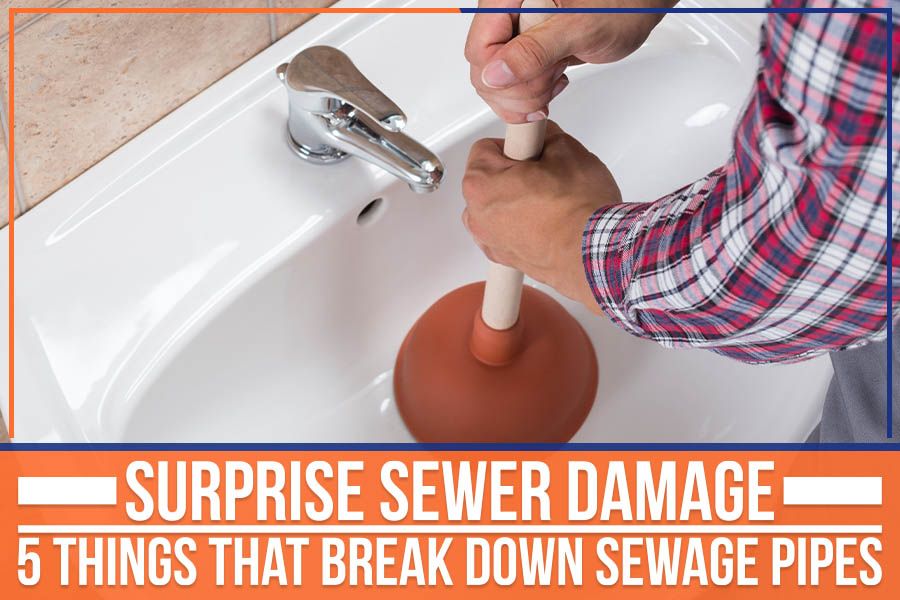
- Post author:admin
- Post published:June 13, 2022
- Post category:A Better Plumber Blog
From small leaks to total collapses, sewer damage can cause costly problems. And while most people think of tree roots as the primary cause of sewer damage, several other things can break down sewage pipes.
A Better Plumber and Sewer bring you 5 of the most common reasons for your sewage pipe blockage.
1. Grease and oils from food
We all love the smell of fried chicken, but the grease and oils from cooking can cause significant problems for your sewer line. Over time, these fats can build up inside your pipes and drains to create a blockage. To avoid this problem, make sure you dispose of all grease and oil properly.
2. Soap residue and scum
Let’s not forget that soap is made of oil, which means that soap residue can also build up on the inside of your sewer pipes and eventually create a blockage. The best way to avoid this nuisance is to use less soap when cleaning yourself or your dishes. Or at least make sure that no solid shards of soap are going down your drain.
3. Hair, toothpaste, and other personal hygiene products
Hair and toothpaste are the two most common reasons you could face a sewage pipe blockage. When hair and toothpaste mix, they create a nasty clog in your pipes. You can avoid this by ensuring that excess hair or toothpaste is not going down your drain. It would be best if you also were careful about other personal hygiene products you’re using. Some of them, like shaving cream, can also cause blockage.
4. Feminine hygiene products
Feminine hygiene products are made of materials that can absorb water, like cotton and other synthetic materials like rayon. When you flush such products down the toilet, they can swell and cause a blockage. Instead, it would be best to dispose of them as directed on the package.
5. Paper towels, napkins, and other disposable items
Paper towels, napkins, and other disposable items are made from cellulose, a natural fiber. Like cotton and rayon, cellulose also can absorb and swell. When these products mingle with other debris in the sewage, they can form clumps and cause major sewage blockage. The same goes for cleaning wipes. Even those advertised as “flushable” are not a friend of your sewage problems.
Keeping a close eye on what you drain down your sink, shower, and toilet can help you avoid costly repairs in the future. Contact a professional plumber for guidance if you have questions about what can and cannot go down your drains.
Where to find a top-notch professional plumber in Fox Lake, IL?
If you need a professional plumber in Fox Lake, IL, check out our services at A Better Plumber and Sewer. We have been providing quality plumbing services for 25 years and are available 24/7 to help with any of your plumbing needs.
Request a free quote now!
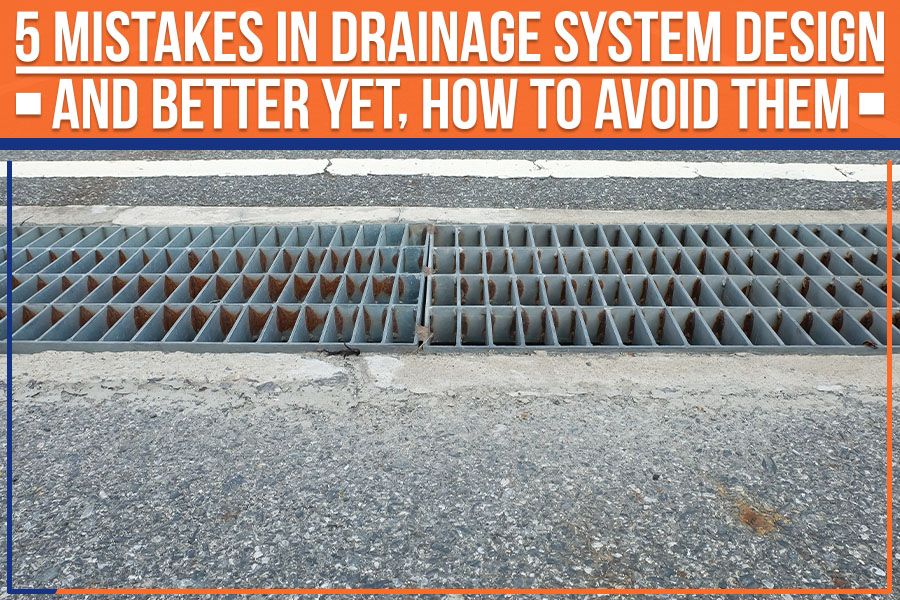
- Post author:admin
- Post published:June 1, 2022
- Post category:A Better Plumber Blog
A well-functioning drainage system is integral to any home or business. When it comes to drainage system design, people often make a few common mistakes.
In this blog post, we will unmask 5 of the most common mistakes and how to avoid them. Stay tuned to learn more!
Error 1: Sloppy Sloping
When talking about drainage design, it’s essential to consider the slope of your flooring. The steeper the slope, the better. Why? A steeper slope means water will flow more quickly and be less likely to pool or cause blockages.
We recommend that your drainage sloping have an optimum slant of ¼ inch per foot. This way, you’ll avoid damage to the pavement, the surrounding buildings, and potential flooding.
Error 2: System Scarcity
One irritating and hazardous issue with drainage design is the lack of numbers. We’ve all been there – a single pipe trying to handle too much water. The result? Backup, overflow, and general system failure.
We’re sure you’ll agree that any area dealing with water needs a decent number of drains. Places like car washes, for example, or areas where rain is a constant visitor.
Error 3: Safety Slips
Designing drainage systems, especially in open areas, requires a delicate balance. On the one hand, you need a system that can handle large volumes of water. However, you need to consider the safety of the people and animals in the area.
There have been incidents where poorly maintained drains collapsed, causing serious safety hazards to the public. These issues can quickly escalate to injuries or even death, making a lawsuit the least of your worries.
Error 4: Rare Repair
After installing a sound system, the next step is to maintain it. Unfortunately, some people think that once the system is in place, they can forget about it. Unfortunately, this is not the case.
Drainage systems need to be regularly inspected and cleaned to prevent blockages. If you neglect your system, you will eventually have to pay for expensive repairs. Instead, design a system with a built-in filter, or better yet, with automated flushing. This will save you time and money in the long run.
Error 5: Environmental Enemy
The type of material you select for your drainage system will also impact the environment. Suppose you choose a material that breaks down easily, like grating or PVC. In that case, you will pollute the very thing you’re trying to protect.
So, be mindful of the type of material you select and make sure it is durable and environmentally friendly. Stainless steel, for example, is an excellent option because it is both durable and eco-friendly.
Conclusion
There you have it! Five common mistakes made in drainage system design and how to avoid them.
If you’re ever unsure about your drainage system or need reliable commercial plumbing service in Round Lake, IL, reach out to us at A Better Plumber & Sewer. We’re always happy to provide expert insights and assistance.
Top 7 Benefits Of Hydro Jetting Your Clogged Pipes
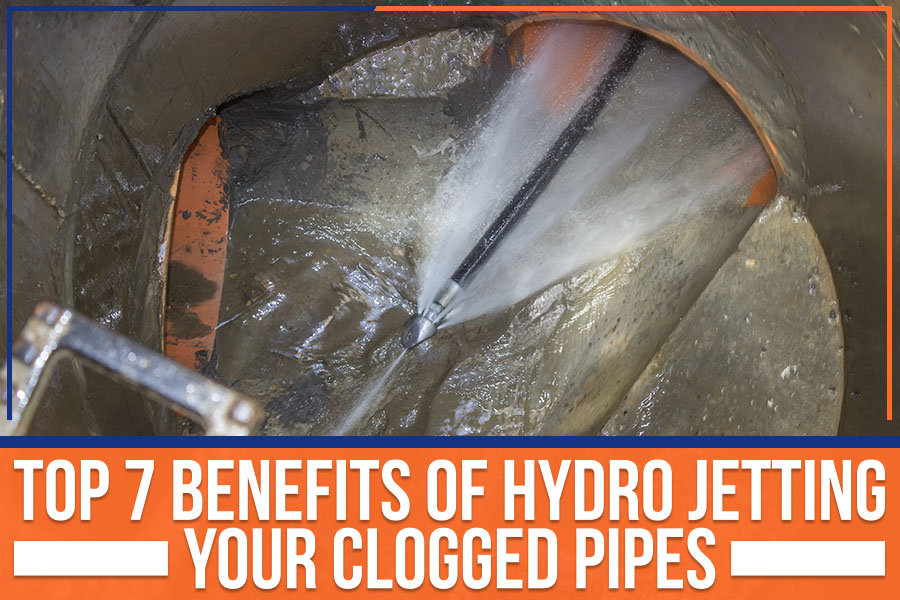
- Post author:admin
- Post published:May 23, 2022
- Post category:A Better Plumber Blog
Hair, grease, sludge, and soap scum can quickly transform your pipes into a clogged mess. The exasperation of dealing with a clogged drain is surreal. You can try all the DIY methods in the book, but sometimes they don’t work. Before you know it, your once small problem has turned into a big, ugly mess. But there is hope! Hydro jetting!
The hydro jetting process involves blasting highly pressurized water into drainage pipes to break down and remove sludge and gunk. A plumber will always perform a video examination to determine the source of the problem and damaged pipe locations before beginning any work.
Here are seven advantages of employing hydro jetting to clear your drains.
Environmentally Friendly:
Indeed hydro jetting uses a lot of water, but it is not as harmful as other sewer cleaning methods that use harsh chemicals. Since hydro jetting utilizes pressurized water, it is a green technology with no harmful impact on the environment. The lack of chemical use makes it safe for people living near water bodies.
Highly Effective:
Conventional plumbing procedures only remove the clog on the surface. However, hydro jetting goes a step further and cleans the entire pipe wall by removing grease, scale, and other buildups, even in the hard-to-reach areas. It ensures that your drain is unclogged and clean, and free from any potential blockages.
Faster and Highly Sanitary:
Cleaning clogged pipes can be a time-consuming and dirty affair. A professional plumber will have to enter your home and use some pretty unsavory methods to clear the blockage. With hydro jetting, the process is faster and much more sanitary. The high-pressure water does all the work, so there is no need for the plumber to put their hands (or any other body part) in the drain.
High Versatility:
Hydro jetting is suitable for residential plumbing issues as well as for clearing out commercial sewer lines. The hydro jetting machine can be easily maneuvered to reach any clogged drain, no matter how deep it is. The method is safe for use on various pipes, including steel pipes, clay pipes, cast iron pipes, etc.
Prevents Future Clogs:
Hydro jetting is a beneficial preventative care measure. The high-pressure water stream removes all the grime, grease, and sludge built up in your pipes over time. It ensures the plumbing system runs smoothly and efficiently for a long time. It can be helpful, especially when moving into a new home. A plumber can highlight any potential problem with your pipe during a video inspection. It prevents future blockages from forming in your drain.
Non-Invasive Method:
When there’s a blockage in your sewage line, plumbers may need to dig a trench to get at the pipes. It might be time-consuming and costly and will certainly create a mess. On the other hand, hydro jetting allows you to use a non-invasive approach that doesn’t require you to dig up your yard. Cleanout access is simple.
High Cost-Effectiveness:
Purchasing cleaning products one after another can be costly. In addition, some of these products are not as effective as they promise to be. Hydro jetting is a one-time investment that will save you money in the long run. It doesn’t clear parts of your sewer line – it cleans the entire system.
Bottom Line:
Clogged drains can lead to stinky and unsanitary conditions in your home. If you don’t want to deal with the hassle and expense of traditional drain cleaning methods, hydro jetting is a surefire way to get the job done right.
A Better Plumber and Sewer, serving Shaumburg, can clear your pipes in no time with our jetting service.







